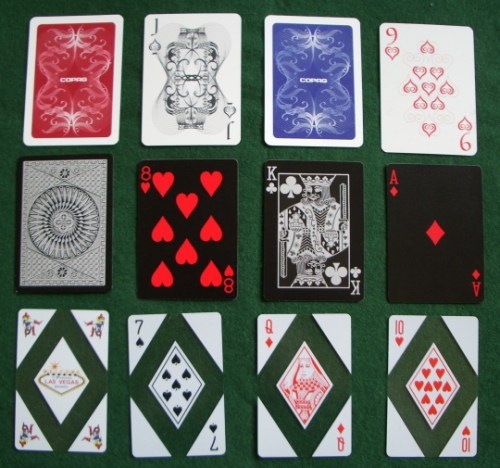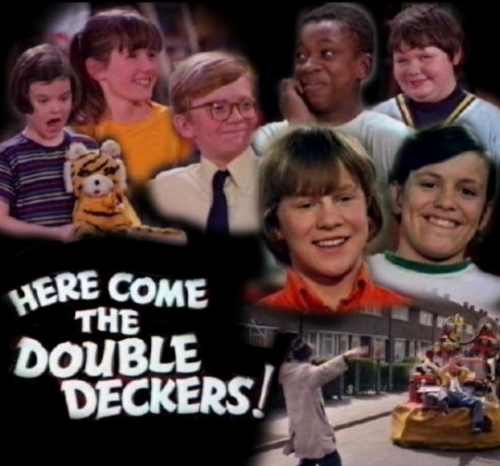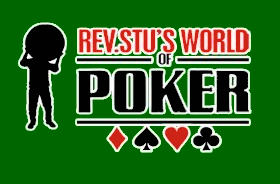|
HOUSE RULES
with The Reverend Stuart Campbell
If
you’ve been following this column Blue Peter-style since the
beginning, then by now you’ll be at the point where you’ve got a
well-structured home game of poker going, played with some nice
professional chips. But if you’re an alert and cultured viewer of
the sort this column likes to cultivate, you’ve probably noticed
that your cards are starting to look a bit shabby.
The
packs that come with the average chipset or that you’ve got in a
drawer or bought from WH Smiths are okay for an annual game of gin
rummy at Christmas, but the intensive handling of a serious poker
game is a different kettle of sausages altogether, and ordinary
cards will very quickly get bent, marked and stained to the point
where you can identify every card in the deck from the back alone.
(As well as just not being very nice to handle in the first place.) What you need are some proper decks that’ll stand up to hours of
riffling, shuffling, dropping on the floor and spilling and still
look as if they’ve just come out of the cellophane.
The
first thing to note is that anything other than 100%-plastic cards
are a false economy. Paper or plastic-coated cards – even if you buy
good name brands like Bicycle or ex-casino decks - are hard to
riffle, prone to bending up at the corners after just minutes of
play, and if one gets creased it’s creased forever. (Real casino
dealers always shuffle the cards face-down on the table, so casinos
use plastic-coated cards because they’re cheaper.) But don’t be
scared – you can get some excellent-quality plastic cards for little
or no more money than crappy paper ones, and plastic doesn’t crease or tear and can be
wiped clean when some muppet knocks an entire pint over it. Here are
some of the best options.
KEM ARROWS (typically around £22 for a twin-deck pack)

Kems
are generally considered to be the gold standard of playing cards.
Incredibly flexible and hard-wearing, they handle absolutely
beautifully and look pretty nice to boot. However, they do have an
odd tendency to curl up at the edges if you leave them unattended
for any length of time, and while it’s easily remedied by putting
them back in their box it’s still slightly irritating when you're
forking out that sort of cash.
COPAG POKER PEEK INDEX (around £14 for two decks)

My
personal favourites. (The short-sighted sometimes dislike the
mini-indices at the corners, but you can get regular-index and plain
jumbo-index versions too.) Less glossy and a fraction firmer than
the Arrows, they’re still so flexible and glidey that they
practically riffle themselves, without being so slippery that they
skid out of your hands. In this columnist's view, Copags are without
doubt the playing-cards of champions.
DAL NEGRO TORCELLO (around £6 for a single deck)

Other
hosts in the B&SW Poker Meetup group swear by these, and they’re a
lovely, extremely durable card, a little stiffer than the previous
two but still a pleasure to work with. An added bonus is that
they’re sold in single packs with proper cardboard boxes, unlike the
Copags and Kems (see BOXING STUPID), and they’re also quad-indexed
in case you have any left-handers at the table. Avoid Dal Negro
Excelsiors, which are horrible.
ROYAL POKER SIZE (from around £1.80 per deck)

These
are the cards to go for if your players are particularly robust or
clumsy. While still very bendy, they’re made of heavier, glossier
stock than most of the cards in this roundup and are almost
indestructible, though the trade-off is slightly less smooth
handling. They’re also the cheapest, but I found them more prone to
printing marks than other brands – buy at least one more deck than
you need, so that you can swap out marked cards with ones from the
spare pack. They're also quite hard to find in the UK, but can be
bought from the US via eBay, with very reasonable shipping rates if
you're buying several decks at once.
DRINKSTUFF ECONOMY/FULL HOUSE TRADING (around £1.99 per deck)


These, though, are probably the best all-rounders for occasional
home-game use. They shuffle and deal almost as well as cards three,
four and five times the price, they look good (especially the
drinkstuff.com cards at the top of the picture, because they’re
cheeky exact knockoffs of the Kem Arrows back design, so get ‘em
before the lawyers show up), and they come in proper individual
cardboard boxes so you can put them in your chip case.
Next month: showing off your nice new chips and cards on a
proper playing field.
|
CARDS ON
THE TABLE
|
|
FANCY, AND TOO FANCY
Once you dip your toe into the world of
premium playing cards it’s easy to get carried away, to the
point where you’re buying ridiculous decks made of ultra-thin
stainless steel that cost £100 a pop. But even below that
level you might find yourself tempted by other “special” cards
in an attempt to make your game a touch more stylish. Don’t do
it – poker players really hate them.
Whether it’s freaky-looking commemorative
designs modelled on the first ever Copag decks from 100 years
ago, reverse-colour black-and-silver packs intended for goth
magicians, or even transparent plastic cards that you can make
faces at the other players through, everyone will just moan
that they’re “too weird” or that they can’t tell the spades
from the clubs, until you give in and get some bog-standard
decks out again. So save yourself the earache and stick to
normal designs.

They might look arty and
pretty, but it turns out that artiness and prettiness
aren’t major parts of what poker players want from a game of
cards.
|
|
GET
ON BOARD THE DOUBLE DECKER
One thing that a lot of people don’t like
about live poker as opposed to online is the relatively slow
pace, particularly the long delay between hands while people
obsessively shuffle the deck until half the pips rub off. One
solution is to just slap anyone who shuffles for more than 10
seconds hard across the face, but a friendlier way is to
double-deck. It often confuses people who haven’t done it
before, but it’s actually a simple process and it speeds live
poker up dramatically.
You need two decks of cards, obviously in
different colours. While a hand is being played with one deck
(eg red), the person to the right of the dealer
shuffles the other deck (let’s say blue). When the hand is
over, the dealer takes the shuffled blue cards and cuts them
to the new dealer, and then gathers up the red cards from the
table and shuffles the red deck while the new hand is being
dealt with the blue one. Next hand, the process obviously
repeats with the colours reversed.
That’s all there is to it, and it means
there’s no delay between hands, since there’s always a
freshly-shuffled deck ready to go the second the previous hand
ends, and the OCD loons have all the time they need to ensure
that it’s been randomised to within an inch of its life. Try
double-decking once and you’ll never go back.

|
|
BOXING STUPID
An odd quirk of
paying out top dollar for super-fancy playing cards is that
you don’t get any practical packaging for your money. If
you’re at the point where you’re laying down 20 quid for two
decks of cards, it’s probably a fair bet that you’re also
carrying your chips in a nice case, which usually come with
slots for two individual packs. So why do all the expensive
cards come in stupid twin-pack plastic boxes or commemorative
tins inside which the cards just flap around loose, leaving you twatting around making sure there aren’t any red cards
in
the blue decks before you can start?
You can’t put the
plastic box in your chip case, and you can’t put the
individual decks in there either because they don’t have their
own cardboard boxes and will fly around all over the place
getting scratched and bent. You end up having to stuff your
lavishly-expensive Kems or Copags into the flimsy boxes of the
crappy Bloggo’s Budget Cards that came with the case. What
tool thought of that one?
|
The Reverend is Assistant Organiser of the
Bristol & South West
Poker Meetup Group, which runs scheduled single- and
multi-table tournaments and cash games at numerous venues across the
region and is sponsored by Poker.co.uk.

(Click the banner to play with other RSWoP viewers, and earn
RSWoP referral bonuses.)
|

